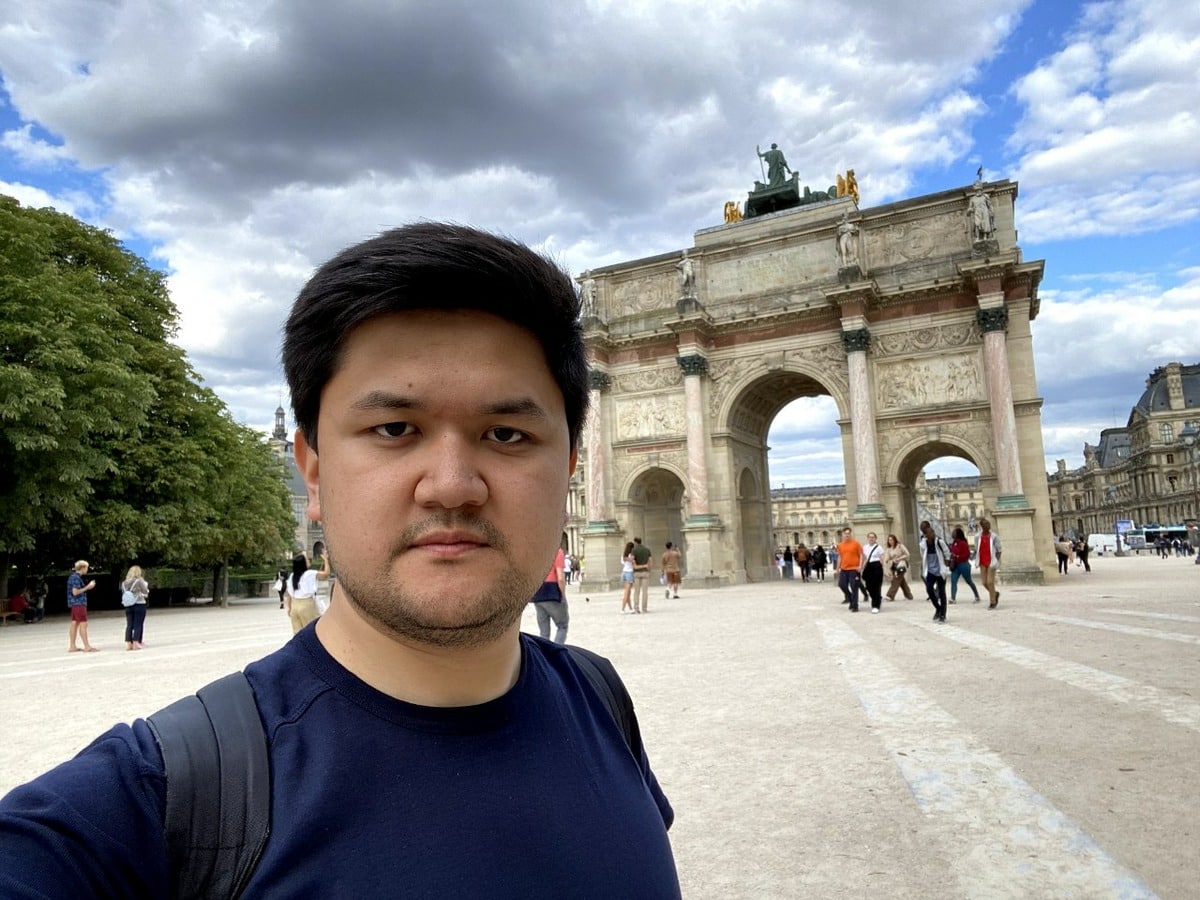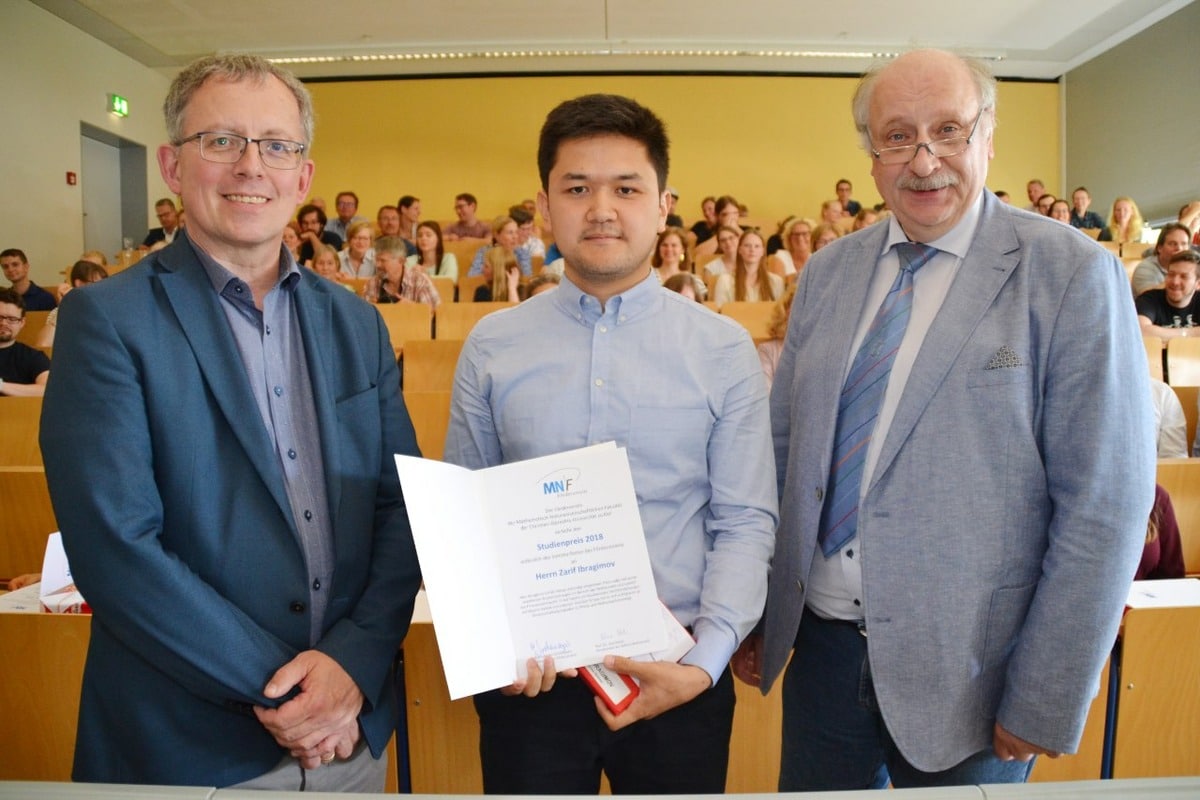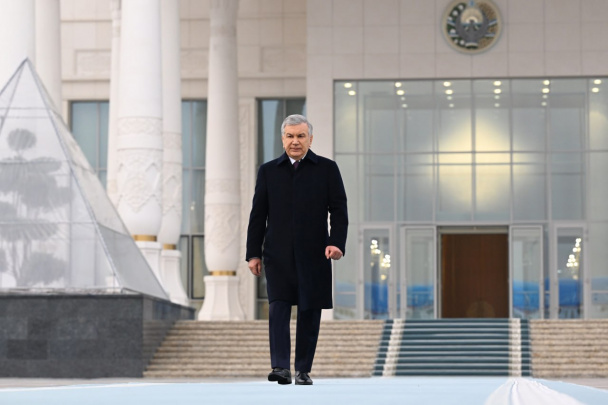Differences between schools of Uzbekistan and developed countries: Uzbek man in Switzerland provides a comparison of public education
“Based on my personal opinion and experience, the only requirement we have starting from school is unconditional obedience. Totalitarian obedience is not required abroad,” our compatriot Zarif Ibragimov, who lives and is carrying out a research work in Switzerland, says.

Zarif Ibragimov
Zarif Ibragimov is 28 years old. He was born in Gallaorol district, Jizzakh region. He received his bachelor’s degree in mathematics in Uzbekistan, and his master’s degree in Kiel University in Germany. The young man is currently pursuing his PhD degree at the University of Bern, Switzerland.
While studying for a doctorate, Zarif also works as a teaching assistant at the university. Our hero shared his thoughts on foreign experience, what is important in quality school education.
He stated that the level of quality in education depends on 2 main factors. The first is the environment of parents and family, and the second – the school and the quality of education in it. Below we will quote Ibragimov’s thoughts.
Parents should form the child’s attitude to education from the first year
Because parents can be involved in the child’s upbringing and attitude towards education, but cannot be responsible for the quality of the education provided or the level of knowledge of the child.
Europe and other developed countries, for example, Japan, ponder a lot about this. Special researches and scientific works are carried out in the field of child education and training. It can be concluded from most of these that it is necessary to form a positive attitude towards education in the child through various activities.
That is, it is not necessary to teach a certain subject to very young children, but there are activities that increase the child’s abilities, train his brain to think quickly, and arouse interest in learning, as a result, he should be occupied with them. Because there is something called the ability of the child’s brain to work, if it is opened earlier, at a certain age, it will show its results while learning the sciences.
Judging by our society, the abilities of 2-3-year-old children are underestimated. Children of this age can be busy at home or go to kindergarten. In addition, Uzbek parents often think about their child’s studies at the last moment. Generally speaking, they focus on education at least in grades 7-8. Until then, thye pay no attention.
I think it would be a very good and ideal thing if our parents would keep their children occupied with various activities to develop their abilities from the first age.
What is the mission of school?
The second issue is the school environment and the quality of education in it. Let’s say a student has reached the 9th grade, now he has to start studying, he has to prepare hard for the subjects he needs. Do schools have a responsibility to enroll children in universities or not? There is such a question.
In fact, the first task of a school is to prepare a person for the society and the people. But if we talk about our society and the current situation, our schools have an obligation to give certain knowledge to students. It is impossible without it.
The only requirement we have starting from school – unconditional obedience
In Uzbekistan, it is called general secondary education, but this is also divided into two, namely primary and further classes. There is a similar division in many countries, some of which have systems similar to ours, and others that do not. These things vary from country to country. In general, general secondary education and some part of this education is compulsory everywhere, as it is here.
As for the differences, the teaching system implemented within the school is different. The issue of freedom... Based on my personal opinion and experience, the only requirement we have starting from school is unconditional obedience. “This is how you should sit! You will wear the uniform we told you! You will behave as we say!” So, what about the quality of education?
In Switzerland, for example, totalitarian obedience is not required. Students are free to study and behave. Of course, attendance issues are also controlled here, but not as deeply as in Uzbekistan. If you have a valid reason, you have the right to leave the class. We have a negative view of such things.
Further differences begin with higher classes. In most cases, children who have completed the 9th grade abroad are free. That is, when the student reaches the age of 14-15, he may not continue school if he does not want to. Because they have the opportunity to practice and gain experience in certain companies during their vacation. If they want, they can be employed in those companies. Schools are also adapted accordingly. To be more specific, they have two schools after 9th grade. The first one is a school that is attended regularly, and the next one is a “vocational” school that is attended at certain times.

9th grade graduates should choose a package of first level subjects for themselves
The teacher’s job is not to go to the blackboard and explain what he has planned, but to think about how to raise an uninterested student’s interest. It is also important to show students the connection between science and life. It is not necessary to show children a subject and say: “You have to study it, or it is necessary to study it”, but it is necessary to prove what they gain or lose as a result of studying or not studying the subject, and how important it is to them.
In most cases, parents give children who have finished the 9th grade to a tutor, as if the school is a place that disturbs them and takes their time. Therefore, a child who has completed the 9th grade should be able to choose a package of first-level subjects for himself. The rest of the subjects must be secondary.
For example, a student who does not see himself in mathematics does not necessarily have to attend a class and learn it in the same way as other students who learn mathematics. Because we may be hindering the personnel who can be good foreign language teachers and specialists with unnecessary subjects.
Management personnel policy is also important in quality education
Creating an environment that provides quality education in a school is not something that is in the hands of a teacher alone. In this case, it will be necessary to pay attention to the personnel policy of the school, from the principal to the training of teachers. This is a bigger issue.
What is the mission or innermost purpose of school principals? Does he consider the assignments from the local authorities to be the first level for him, or the quality of education that the children are receiving?
In my opinion, school principals are more troubled by organizational problems. However, management personnel policy is also important in quality education. Selection of directors and their qualifications should also be taken care of. Because it is the leadership, school principals who select teachers for the school.
It does not mean that a graduate of mathematics can teach mathematics
Since I am a mathematician myself, I will give an example: let’s say that 200 students graduated from the mathematics faculty of one university, the bachelor’s degree in mathematics, and not all of them will have the potential to study at the master’s degree or do research work. Higher education institution does not have the opportunity to hire all these students. What does this mean? Most of them go to schools to become teachers. For them, it remains a last option.
We are training the person who will become a professor of mathematics tomorrow, the person who wants to choose another field after graduating from the bachelor’s degree in mathematics, and the teacher in the same place under the same scheme. How true is that?
In my opinion, it is necessary to make a statistic, that is, how many of the teachers graduated from where? Based on my personal experience, most of the teachers who teach specific subjects at school come from the educational institutions I mentioned above. They will not be graduates of the pedagogy faculty, because it mainly produces personnel for primary education.
Pedagogical personnel should spend 2 years on how to be a pedagogue and how to conduct a lesson at the Higher Educational Institution. In the rest of his time, he should familiarize himself with how the quality education system is established in developed foreign countries. Without doing so, we are demanding pedagogical technology, modern education from a teacher who recently came to work. This does not work.
In general, I think that a thorough system should be worked out in this regard and teachers should not be touched until it bears fruit for a certain period.
Related News

18:13 / 21.01.2026
President Mirziyoyev departs for Switzerland to sign US-initiated Peace Council charter

15:54 / 25.12.2025
Uzbekistan to roll out professional foster family service for children affected by violence

12:19 / 25.12.2025
Uzbekistan approves 2026–2030 strategy to protect children from all forms of violence

20:35 / 24.12.2025



